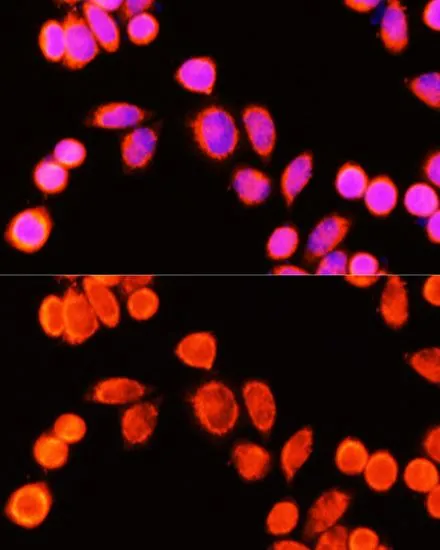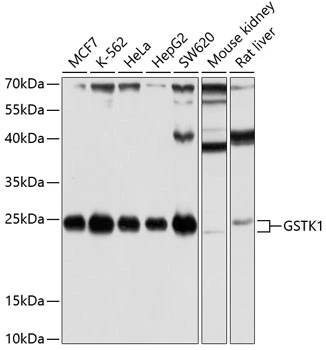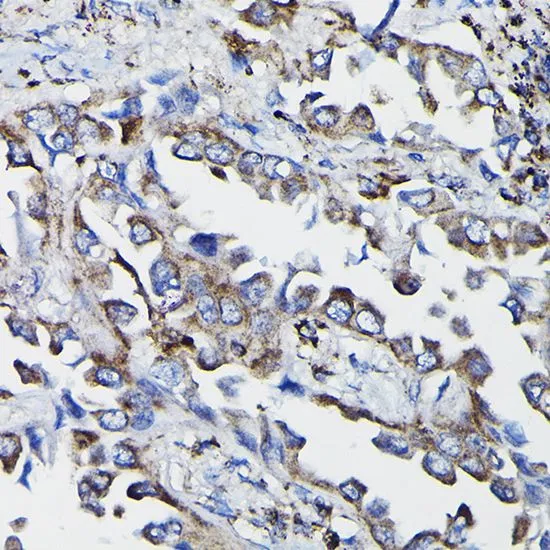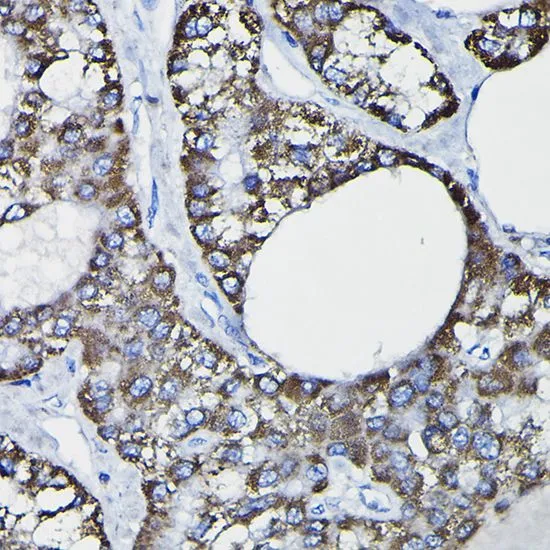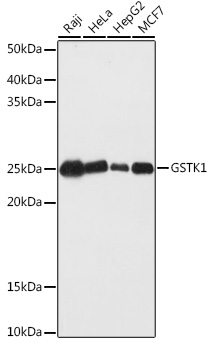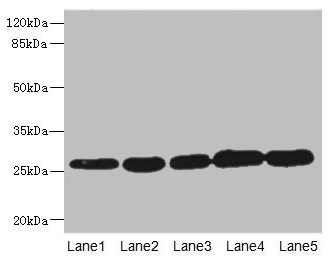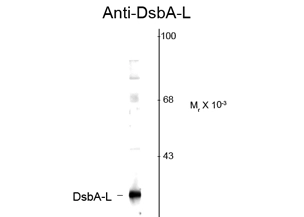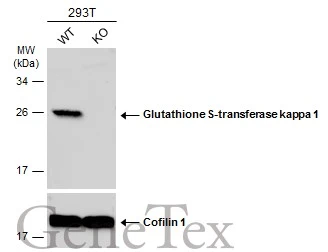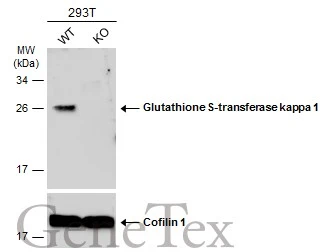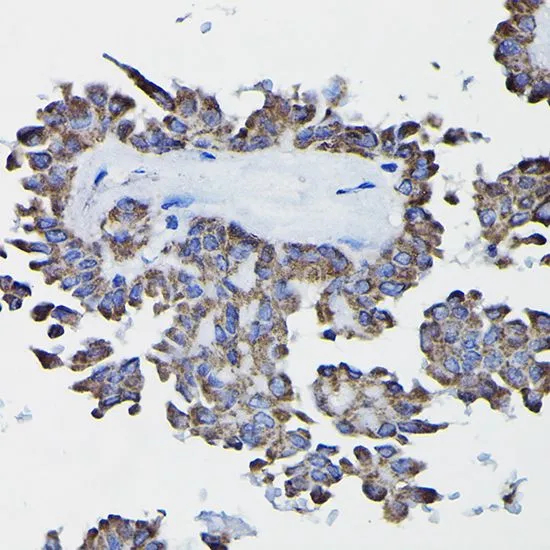
IHC-P analysis of human thyroid cancer tissue using GTX65889 Glutathione S-transferase kappa 1 antibody. Dilution : 1:25
Glutathione S-transferase kappa 1 antibody
GTX65889
ApplicationsImmunoFluorescence, Western Blot, ImmunoCytoChemistry, ImmunoHistoChemistry, ImmunoHistoChemistry Paraffin
Product group Antibodies
ReactivityHuman, Mouse, Rat
TargetGSTK1
Overview
- SupplierGeneTex
- Product NameGlutathione S-transferase kappa 1 antibody
- Delivery Days Customer9
- Application Supplier NoteWB: 1:500 - 1:2000. ICC/IF: 1:50 - 1:100. IHC-P: 1:50 - 1:100. *Optimal dilutions/concentrations should be determined by the researcher.Not tested in other applications.
- ApplicationsImmunoFluorescence, Western Blot, ImmunoCytoChemistry, ImmunoHistoChemistry, ImmunoHistoChemistry Paraffin
- CertificationResearch Use Only
- ClonalityPolyclonal
- ConjugateUnconjugated
- Gene ID373156
- Target nameGSTK1
- Target descriptionglutathione S-transferase kappa 1
- Target synonymsGST, GST 13-13, GST13, GST13-13, GSTK1-1, hGSTK1, glutathione S-transferase kappa 1, GST class-kappa, glutathione S-transferase k1, glutathione S-transferase subunit 13 homolog
- HostRabbit
- IsotypeIgG
- Protein IDQ9Y2Q3
- Protein NameGlutathione S-transferase kappa 1
- Scientific DescriptionThis gene encodes a member of the kappa class of the glutathione transferase superfamily of enzymes that function in cellular detoxification. The encoded protein is localized to the peroxisome and catalyzes the conjugation of glutathione to a wide range of hydrophobic substates facilitating the removal of these compounds from cells. Alternative splicing results in multiple transcript variants.[provided by RefSeq, Jan 2009]
- ReactivityHuman, Mouse, Rat
- Storage Instruction-20°C or -80°C,2°C to 8°C
- UNSPSC41116161

